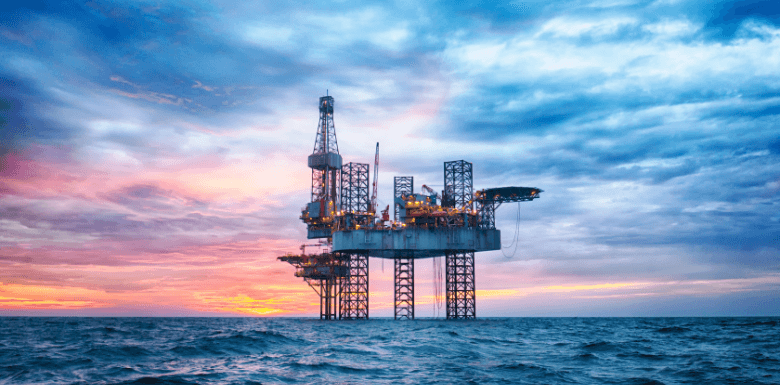
Offshore drilling in the U.S. and Gulf of Mexico is often considered one of America’s most hazardous professions. Workers must handle highly combustible materials, toxic chemicals, and heavy equipment regularly. Nevertheless, the oil and natural gas industries continue to grow rapidly, supplying many Texans and others along the Gulf Coast with high-risk jobs. Whether you are working on a platform or drillship, it is important to know what to do after being involved in Gulf of Mexico drillship accidents and offshore oil platform deaths.
According to the Centers for Disease Control and Prevention (CDC), offshore workers are seven times more likely to die on the job than any other type of worker in the United States. For seamen and other crewmembers working aboard a drillship, their daily work life is full of long work hours and little to no rest, which increases the risk of offshore accidents.
Drillships have become the most popular offshore drilling rigs since they travel faster than semi-submersibles. In addition to their movability, drillships are also great at deep-sea drilling. Typically used in deep and ultra-deep waters, these vessels can be used in water depths ranging from 2,000 to more than 10,000 feet.
Offshore Drilling Worker Accidents
The Occupational Safety and Health Administration (OSHA) oversees working conditions at all offshore oil rigs and well sites and conducts inspections to ensure that they meet federal safety requirements. However, due to limited resources, numerous violations are overlooked or ignored, creating dangerous working environments. Long working hours and insufficient rest periods also increase the chance of offshore accidents.
Traumatic brain injuries, amputations, paralysis, and trauma can result from various types of offshore drilling hazards, including:
- Rig collapses
- Hazardous weather conditions
- Defective equipment or poorly maintained equipment
- Blowouts
- Chemical explosions and other offshore fires
- Slipping catheads
- Deck or platform collapses
- Broken cables
- Unsecured tools
- Toxic leaks
- Collisions with other vessels
- Inadequately trained crewmembers
- Falls from ladders and slips on stairs
- Sludge and oil contamination
- Falling overboard
Drillship Accidents
Drilling ships (or drillships) are vessels that contain their onboard drilling rigs and are used for exploratory drilling and extracting oil and gas at sea. Unlike other offshore vessels, drillships are highly mobile and can move quickly between drilling wells and other locations. Maritime work aboard drillships is physically demanding and can be very dangerous. Whether it’s malfunctioning equipment or problematic gear, the working conditions and tools used can become disastrous for seamen. Drillers can be injured by hazards like falling objects or suffer burns, back and neck injuries, or even lose a limb to amputation after a crush injury. At least 40 percent of these offshore accidents occur on the drill floor.
If you were injured while working on a drillship, your claim likely falls under the Jones Act. This means you will receive maintenance and cure benefits from your employer – or payment of your medical bills and at least a portion of your wages. In addition, you may also be able to file a civil lawsuit against your employer and any other responsible parties. In a Jones Act case, an injured offshore worker can seek compensation for their pain and suffering, past and future lost wages, disability and disfigurement, past and future medical treatment, and other available damages.
Oil Platform Deaths
Because oil rig workers are surrounded by heavy equipment and flammable often-volatile substances all day, any accident could be fatal or leave someone in serious condition. Working on an oil platform comes with a lot of occupational risks. Many fatal oil platform incidents occur because the companies employing maritime workers put profits before safety. If your loved one was killed while working at sea, you could file a claim under DOHSA.
The Death on The High Seas Act (DOHSA) holds negligent vessel owners, operators, and crewmembers responsible for the wrongful death of offshore workers. The Act covers the damages of pain and suffering for the deceased’s family, but only certain family members – the surviving spouse and children, and also parents and siblings but only if they were financially dependent on the deceased. A DOHSA claim must be filed within three years of the date of death, and maritime cases can take a while to investigate, so do not wait to contact an experienced offshore accident attorney.
Compensation For Drillship Injury Cases
When you or your loved one suffers injuries in a serious offshore accident, you might feel overwhelmed and unsure how to move forward. Fortunately, there are maritime laws in place to protect victims of oil rig accidents, and an experienced maritime attorney can help you recover the compensation you deserve. The Houston personal injury lawyers at The Krist Law Firm, P.C. have successfully represented victims of offshore drilling accidents for decades. We are 100 percent committed to supporting your recovery process.
Our Texas offshore drilling injury lawyers can help you get financial compensation for medical costs, physical pain, mental anguish, physical impairment, disfigurement, and more damages caused by work-related accidents. After an initial assessment, we will evaluate your situation, collect evidence and documents, and prepare a legal claim against the negligent party or parties.
Schedule a free one-on-one case consultation today with an experienced Houston offshore injury lawyer at The Krist Law Firm, P.C. We do not charge any legal fees unless you receive a financial recovery.

